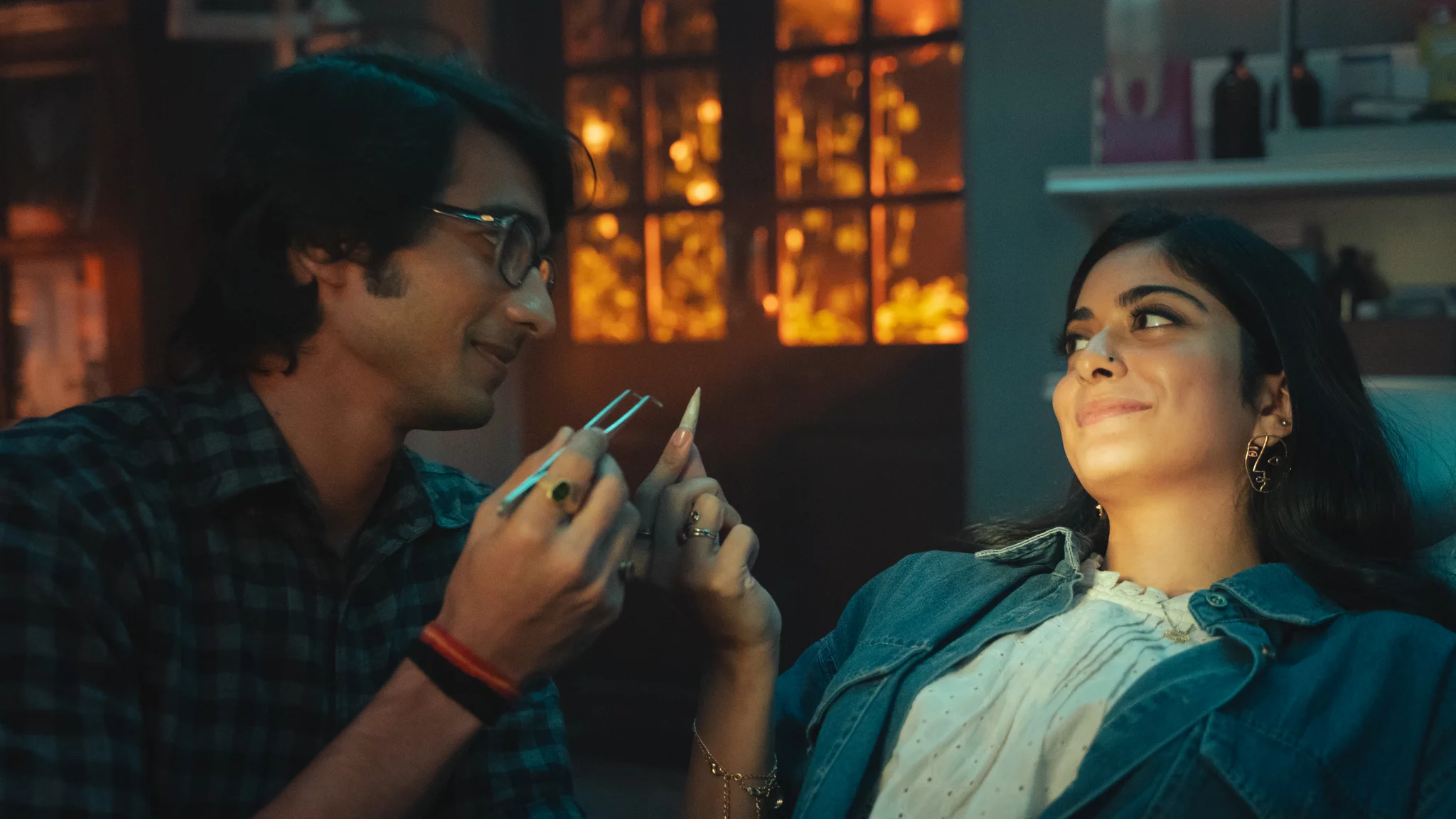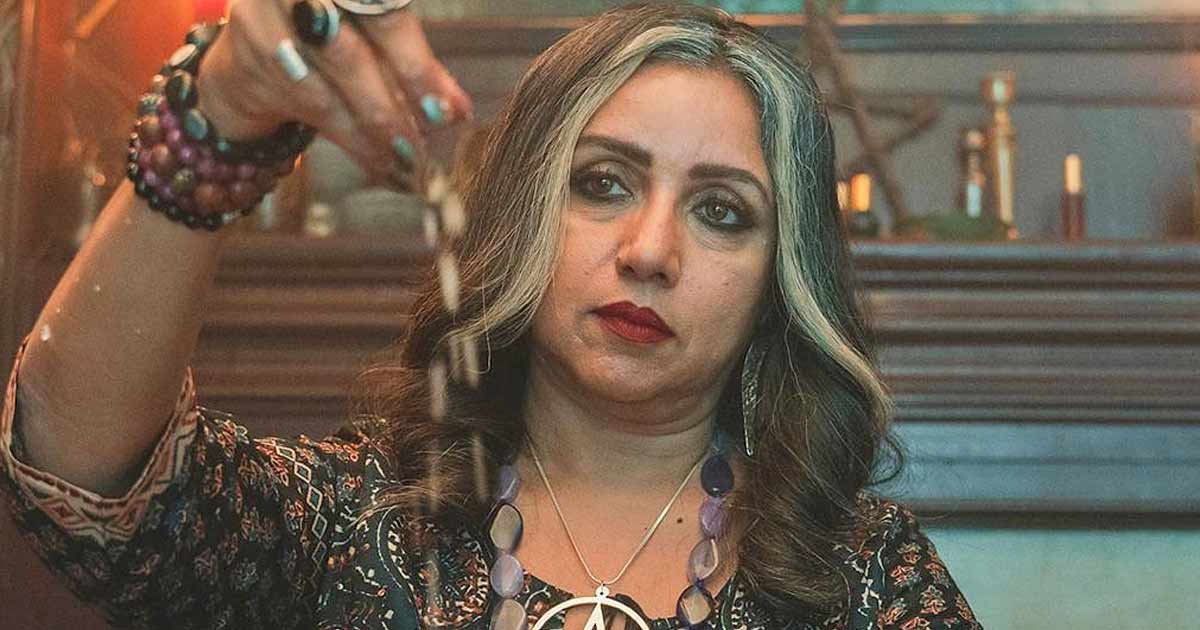
Tooth Pari: When Love Bites review: A romantic thriller fantasy with political undertones

Coincidences to get characters in trouble are great; coincidences to get them out of it, are not. That’s storytelling 101. Tooth Pari: When Love Bites, Netflix’s latest romantic thriller fantasy, relies heavily on the former and skillfully doges the latter. Writer Pratim D. Gupta builds a world of vampires living in an underground den in Calcutta, called Neeche.
A select group of vivacious women, who are a part of the Baaghini clan, leave Neeche to go Upar, in hunt for fresh blood. Rumi, played by Tanya Maniktala, ends up losing her tooth which leads her to Dr Bikram Roy (Shantanu Maheshwari), a shy dentist who faints at the sight of blood, a medical condition he is mocked for throughout the eight-episode series.
In all fairness, Tooth Pari starts off shakily and struggles to find its ground. The first two episodes feel jittery as the balance between the romance, comedy and thriller scenes is completely off. World building, as with any fantasy series, takes time. But with Tooth Pari, you might find yourself thrown off by the humour and overly quirky subplots which, at times, take away from the seriousness of the make-believe world. The tonal shifts between scenes are rather shaky.
Vampires and the Naxals: A parallel
It is only the third episode onwards, after the entry of Revathi (she plays the Wiccan priestess Luna Luca) that the show begins to find its feet. The central conflict of vampires vs witches becomes clear as daylight; so do the political undertones. Gupta roots the folklore of vampires in 1960s Calcutta and the Naxalite-Maoist insurgency.
Also read: Mani Ratnam on violence in PS-2, missing Ilaiyaraaja, comparisons, historical films
Following the death of communist leader Charu Mazumdar in 1967, clashes between Naxals and the police force broke out in Bengal. As a result, fake encounter killings of Naxals were carried out in the state, which forced the group to go into hiding. Much like the “bloodthirsty” vampires who are afraid to venture out in the sun, Naxals are now in hiding. However, those who have scores to settle (Cathmundus) are still on the hunt for Naxals (vampires in Tooth Pari), accusing them of “converting” humans.
The word “conversion” is used multiple times in the context of vampires biting humans and turning them into one of their own. Vampires, Rumi in particular, are also called Darinda multiple times, implying that much like vampires in the show, Naxals have, for far too long, been denied their humanity. The political messaging of the show is steadfast, but could have been more effective had the offbeat humour not dampened its seriousness.
Still, the show has plenty of laugh-out-loud moments which work well, courtesy Sikander Kher, who plays Kabir, a cop in his mid-40s. The face-off between a shy, timid, non-confrontational Roy (Shantanu) and the brash, rowdy Kabir (Kher) is the highlight of the show. The cackling chemistry between seductress-in-chief of the Baaghinis, Meera (Tillotama Shome) and Rumi’s foster father David (Saswata Chatterjee) is a treat to watch. The seventh episode, where Rumi and Roy’s parents meet each other, plays out as a clash between the progressives and the conservatives, at the end of which, both sides understand each other better.
Also read: Indian Matchmaking: Sima Aunty epitomises all that’s wrong with arranged marriages
The absurdity of gags
The gags are good too. A bearded man with thyroid cancer, who wears funky clothes and raps at a party, is called “Badshah” (reference to the real-life rapper). Adil Hussain (AD), who wears a blatantly fake wig and mustache, is called an artist from a “bad wig theater company” in one scene. There is also a blood bar in vampire’s den where one can “unzip, slurp and burp” packaged blood stolen from a nearby blood bank. Kolkata metro trains are often heard passing above this underground den which causes it to reverberate with the movement of the wheels.

The gags are more silly than tongue-in-cheek, and most of them are centered on the sheer absurdity of blood-drinking vampires hiding from the sun. In one scene, Roy forces Rumi, a vampire, to have garlic sabzi and asks his mother to give her silver jewellery as a gift to check if she is indeed a vampire. Make of that what you will.
A gag that fails miserably though is Roy’s fear of blood. In fact, Roy is barely convincing as a dentist. Dentists, or as Kabir calls them Dant Manjans, are shown as people who play with cotton pliers and spoon excavators as a hobby, rather than professionals who have a degree in dentistry. Not once does Roy come off as a professional dentist. The fact that he has a makeshift kitchen where he cooks fish, right next to his operating chair (pretty sure that’s a health violation), doesn’t help his case.
Also read: ‘Beef’ review: A darkly humorous exploration of road-rage-fuelled feud, repressed grief
Worth-the-wait payoff
The receptionist at the clinic, much like an employee on her notice period, is always ready to go home early. The portrayal of dentistry in the show is very off-putting and unrealistic. To put things into context: even after two appointments with Dr Roy, Rumi is not able to get her canine fixed (Roy faints seeing blood in the first appointment, and in the second, Rumi realizes she didn’t bring her broken tooth which she wanted fixed). Be warned, willing suspension of disbelief is needed more than you’d expect.
Tooth Pari’s biggest flaw is that it is set out to do multiple things at once (it is essentially a romantic comedy mystery thriller fantasy). While one shouldn’t box shows that defy genres into specific boxes, the show must, at the very least, attempt to do justice to some of the genres. While Tooth Pari manages the romance and fantasy bit fairly well, it falters in the comedy bit not because of standalone gags (which work well) but due to sudden tonal shifts in scenes which don’t seem convincing.
The series deserves appreciation solely because amid a barrage of mediocre Twilight remakes, it’s the first vampire origin story which has been rooted in Indian history. But just like a cavity filling takes multiple dentist appointments to be repaired, Tooth Pari will test your patience initially. The payoff in the end though is completely worth the wait.


